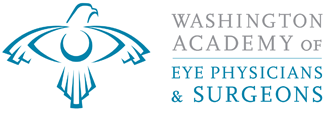Eye Care Timeline: Ages 40-64Somewhere around age 40, many people start to find that their arms aren’t long enough to hold a book far enough from their eyes to focus. This inability to focus on close objects is a most common—and correctable—condition that marks the beginning of a new phase in your eye-health cycle.For more information about eye health information for Adults 40-60 and answers to other questions about eye health for Adults 40-60, please click here.The American Academy of Ophthalmology recommends that all adults have a baseline eye-disease screening at age 40. This means having a complete eye examination by an ophthalmologist, even though you have no symptoms. Why? Because this is the time when early signs of disease and changes in vision may start to occur. Based on the results of this screening, the doctor will recommend when you should return for follow-up exams. You should also continue regular visits to the ophthalmologist to treat ongoing disease or injuries, or for vision examinations for eye glasses or contact lenses. And be sure to protect your eyes from the sun and from injury at work, at home, or in sports activities. |
